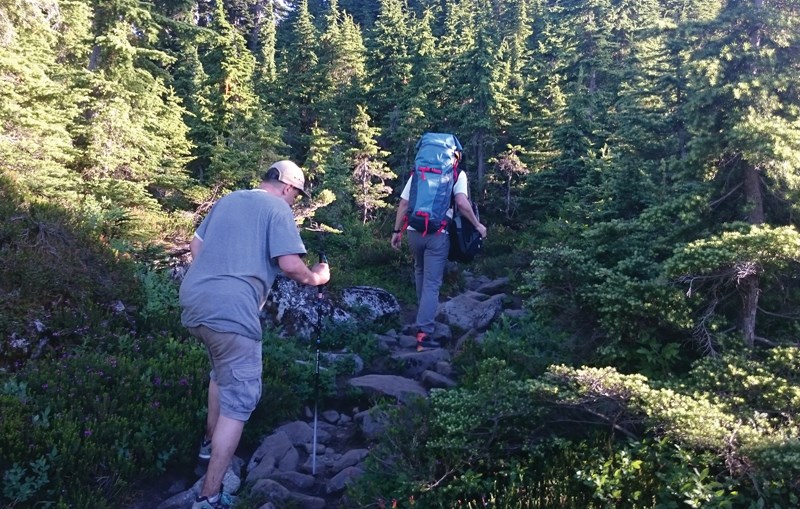Half of all foreigners lost or injured in the North Shore backcountry wrongly assume they have to pay for their rescue, says North Shore Rescue, which came to the aid Sunday night of a U.S. tourist who waited to call for help.
The 34-year-old man, who was hiking alone, started his backcountry adventure on the Hanes Valley loop, a challenging 15-kilometre trail that connects Lynn Valley with Grouse Mountain.
“But not only was he attempting that eight-plus-hours difficult hike, he added going up Crown Mountain and got to Crown Pass rather than head directly to Grouse,” said North Shore Rescue search manager Doug Pope.
After summiting Crown Mountain, the tourist, who was already exhausted at this point, twisted his back coming down and could not carry on. Hikers passing by offered to call 911 once they reached cell reception again, but the man refused at first.
“He understood that he could be charged for the call and he was hesitant for anyone to call 911, originally,” said Pope. “Eventually he realized he needed the help and he had someone hike out and call.”
North Shore Rescue was dispatched around 5:45 p.m. and assembled an 11-member team to respond. An ER doctor and another team member were flown to a helipad at Goat Ridge in the upper Grouse Mountain backcountry, approximately 3.5 km from the Grouse chalet.
From there the rescuers hiked down to the man who was assessed by the doctor and given ibuprofen for his pain, said Pope. They then slowly hiked with the man about a kilometre up a steep slope back to the helipad, before being flown back to the Capilano Gate SAR station.
The man required no further medical treatment. North Shore Rescue, meanwhile, is reminding the public they don’t charge for rescues, which Pope said is a common misconception among one in two tourists from outside of Canada.
Rather than phoning the local authorities for help, Pope has heard of stranded tourists calling “their uncle in Tennessee” for advice or having a friend try to plot their location on Google Maps from their living room and not faring so well.
Those missteps delay a response from North Shore Rescue, “and then our job gets a lot more difficult,” said Pope.
Not calling for help right away adds more risk for both the rescuers and the rescuees, as injuries could worsen during the wait in the wilderness, not to mention a waning cell phone battery.
Also, if daylight is lost and a helicopter can’t be used during the callout, that forces rescuers to traverse mountainous terrain in the dark in varied conditions.
North Shore Rescue is reiterating that backcountry adventurers should be prepared with the 10 essentials (listed at northshorerescue.com), hike with a friend, carry an alternate communication device if going into an area without cell coverage and research the hike before heading out.



